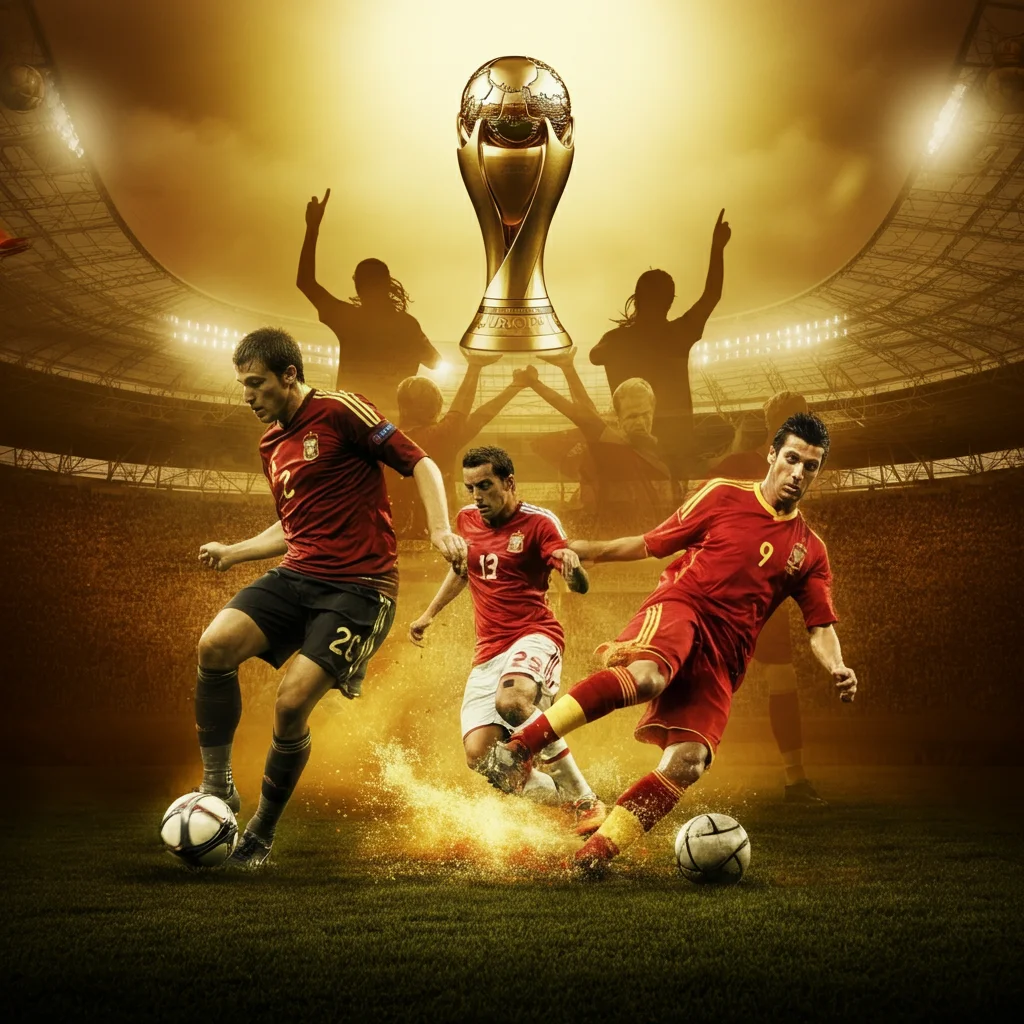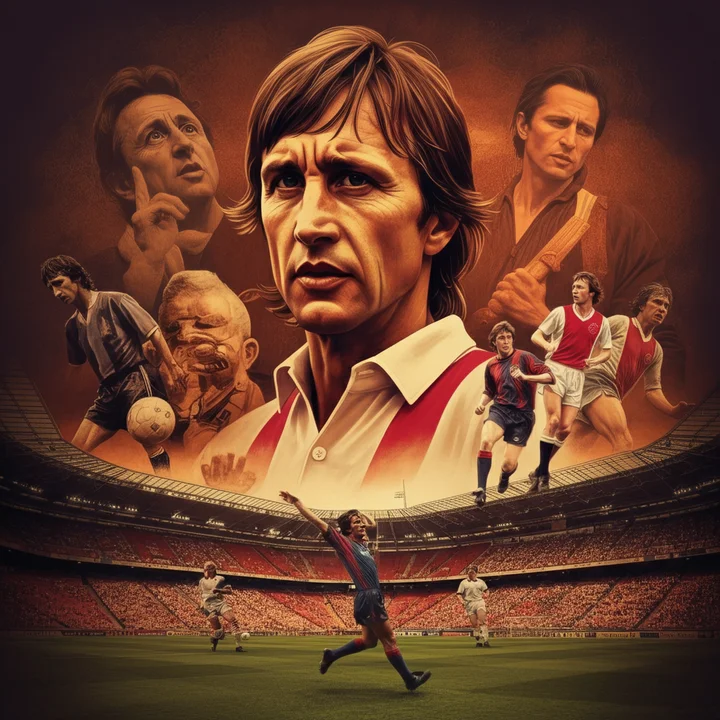From 2008 to 2012, Spanish football was untouchable. La Roja, Spain’s national team, rose to unprecedented heights, achieving a level of domination rarely seen in international football. During this golden period, Spain claimed three consecutive international trophies—Euro 2008, the 2010 FIFA World Cup, and Euro 2012. No other team had managed such a feat.
But what made this generation so special? Was it the tactical brilliance, the incredible roster of talent, or the seamless cohesion they demonstrated on the pitch? This blog unpacks the elements that defined Spain’s golden era and examines how this legacy continues to shape the world of football today.
Trophies and Achievements
Between 2008 and 2012, Spain achieved what many nations only dream of. Their trophy cabinet swelled with:
Euro 2008
The triumph at the 2008 UEFA European Championship marked the beginning of Spain's dominance. Under the leadership of Luis Aragonés, Spain defeated Germany 1–0 in the final, thanks to a David Villa goal. This tournament broke Spain’s underachiever tag in international football, ending their 44-year drought for a major title.
2010 FIFA World Cup
The peak of their dominance came two years later. At the 2010 FIFA World Cup in South Africa, Vicente del Bosque guided Spain to their first-ever World Cup victory. Andrés Iniesta’s extra-time goal in the final against the Netherlands sealed a 1–0 win, crowning Spain champions of the world.
Euro 2012
Spain proved their supremacy further by defending their European title at Euro 2012. Their emphatic 4–0 victory over Italy in the final not only showcased their unparalleled skill but also cemented their place as a legendary team in football history. This win made Spain the first national team to win three consecutive major international tournaments.
Key Players of the Golden Generation
While team cohesion defined this era, the individual brilliance of iconic players was undeniable. Some of the most notable figures included:
Xavi Hernández and Andrés Iniesta: The midfield maestros were the heartbeat of Spain's tiki-taka system. Xavi’s vision and Iniesta’s creativity orchestrated play to perfection, setting the tempo for matches.
Iker Casillas: Spain’s captain and goalkeeper, Casillas, provided leadership and unmatched shot-stopping abilities. He was instrumental in keeping clean sheets during Spain's victorious tournaments.
David Villa: Spain’s clinical striker and all-time top scorer was crucial in converting chances into goals, scoring key goals in Euro 2008 and the 2010 World Cup.
Sergio Ramos and Carles Puyol: This defensive duo provided stability at the back. Puyol’s leadership and Ramos’ athleticism were crucial in neutralizing the opposition’s attacks.
Cesc Fàbregas and Xabi Alonso: These midfielders added depth and variety to the team. Their ability to adapt and complement Xavi and Iniesta in midfield allowed Spain to control the game effortlessly.
Every player understood their role, and together they created a harmonious and effective unit.
Tactical Identity
At the heart of Spain’s dominance was their tactical identity, which revolved around tiki-taka football. Popularized during this era, tiki-taka is a possession-based style of play characterized by short, quick passes and constant movement off the ball. Its emphasis on maintaining possession allowed Spain to suffocate opponents and dictate the pace of matches.
Principles of Tiki-Taka:
Patience - Players would pass the ball continuously until a clear opportunity emerged.
Positional Play - Maintaining a strict positional structure to ensure control of the pitch.
Quick Transitions - Switching from defense to attack with seamless precision.
This system minimized risks and maximized Spain’s strengths in technical prowess and spatial awareness. The coordination required for tiki-taka depended heavily on intelligent players like Xavi, Iniesta, and Busquets, who could read the game and make split-second decisions.
Coaching Influence
Two leaders were pivotal in Spain’s historic run of success:
Luis Aragonés (2004–2008)
Luis Aragonés, often referred to as "El Sabio de Hortaleza" (The Wise Man of Hortaleza), transformed Spain from hopeful underachievers into a solid unit. His courage to drop established players and trust a new generation created the foundation for Spain’s golden era. He introduced the tiki-taka philosophy and led Spain to their Euro 2008 victory.
Vicente del Bosque (2008–2016)
Building on Aragonés’ foundation, Vicente del Bosque added tactical flexibility and a calming presence. His management style allowed flair players to express themselves within a structured system. Under Del Bosque, Spain achieved their ultimate victory at the 2010 World Cup and continued their reign at Euro 2012.
Impact on Club Football
Spain’s success wasn’t confined to the international stage. It had a profound influence on club football, particularly at FC Barcelona and Real Madrid.
Barcelona, under Pep Guardiola, epitomized tiki-taka with a core group of Spanish players, including Xavi, Iniesta, and Busquets. Their philosophy mirrored Spain’s, resulting in multiple domestic and European titles. Similarly, Real Madrid leveraged the experience of players like Ramos, Alonso, and Casillas to compete at the highest level, shaping their strategies around the skills honed with La Roja.
Legacy of the Golden Generation
Spain’s golden generation changed the tactical and cultural landscape of football. Their impact is evident in:
Tactical Inspiration: Teams worldwide have adopted aspects of the tiki-taka philosophy, focusing more on possession and technical football.
Development of Young Players: Spain’s dominance inspired a renewed focus on youth academies, particularly in Spain, to emphasize skillful, tactically intelligent players.
Raising the Bar for National Teams: Spain set a benchmark for what a cohesive, well-drilled national team could achieve, influencing teams like Germany in 2014.
While Spain’s dominance waned after 2012, their influence endures. Future teams, both nationally and at the club level, continue to build on the ideas pioneered during this golden era.
The Greatest National Team Ever?
It’s hard to argue against Spain’s golden generation being the greatest international side in the history of football. Their unparalleled three-title streak and revolutionary approach to the game set them apart from other legendary teams like Brazil’s 1970 squad or Germany’s 1974 team.
What made this team truly remarkable wasn’t just their results, but their ability to redefine how the game was played. Spain brought artistry, intelligence, and discipline to football, creating a legacy that transcends trophies.
For fans, coaches, and players alike, they left an invaluable lesson: Football isn’t just about winning; it’s about how you win.



